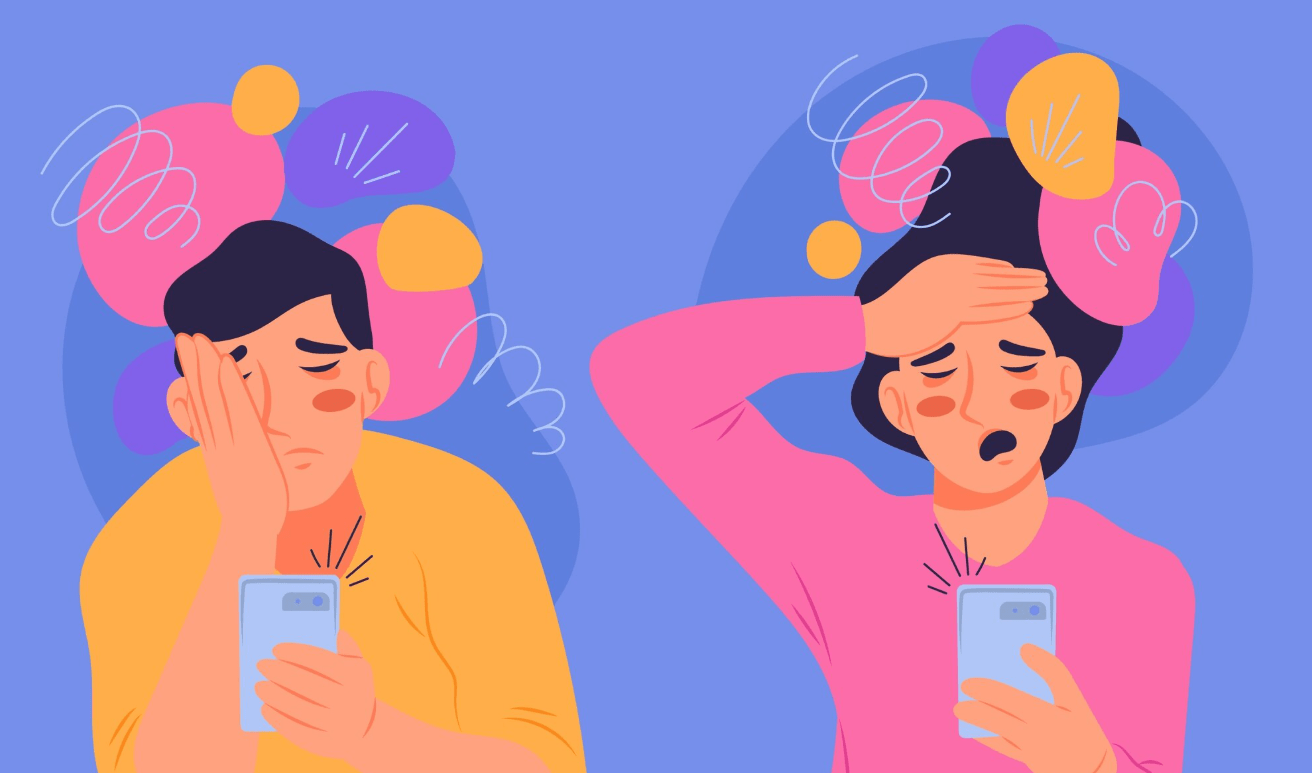What are the signs of poor brain function?

We all have off days when our brain feels foggy, forgetful, or just slow. But how do you know if it’s just tiredness or a real sign of poor brain function? Recognizing the warning signs early is key because your brain, like your body, responds better when problems are spotted and addressed early.
In this article, we’ll explore common signs of poor brain function, what they mean, and simple ways to start improving your mental performance - including fun, easy tools like Moadly that train memory, focus, and logic every day.
What Does Poor Brain Function Mean?
Poor brain function can show up as memory lapses, trouble focusing, slower thinking, or difficulty making decisions. It doesn’t always mean a serious disease, but it is a sign that your cognitive skills could use a boost.
Some causes include:
- Lack of sleep or poor sleep quality
- Stress or anxiety
- Illness or fatigue
- Poor nutrition or dehydration
- Age-related decline or neurological conditions
The good news is that many of these factors can be improved with lifestyle changes and mental exercises.

10 Common Signs of Poor Brain Function
Here are some of the most noticeable signs that your brain isn’t performing at its best:
- Memory lapses: Forgetting names, dates, or where you put things.
- Difficulty concentrating: Losing focus on tasks or reading without absorbing anything.
- Slower thinking: Taking longer to make decisions or solve problems.
- Confusion: Trouble remembering the sequence of events or understanding instructions.
- Poor coordination: Clumsiness or difficulty performing tasks that require motor control.
- Mood changes: Irritability, anxiety, or feeling mentally “foggy.”
- Poor planning: Struggling to organize tasks or manage time efficiently.
- Difficulty learning new skills: Taking longer to pick up routines, software, or hobbies.
- Reduced attention span: Easily distracted or unable to complete tasks.
- Sleep problems: Poor brain function can also show up as insomnia or irregular sleep patterns.
How These Signs Affect Daily Life
Even mild cognitive decline can make everyday tasks harder. For example:
- Forgetting passwords or where you put your keys
- Getting lost on familiar routes
- Mixing up appointments or deadlines
- Feeling overwhelmed by multitasking
- Taking longer to learn a new work tool or app
These small difficulties add up over time, but the good news is that your brain is adaptable. With consistent mental exercise and healthy habits, you can improve your cognitive performance.
Early Warning Signs Table
Here’s a quick table summarizing common signs, what they mean, and ways to address them:
| Sign | Meaning | How to Improve |
|---|---|---|
| Memory lapses | Short-term recall is weak | Use memory games like Moadly, repeat names aloud, use reminders |
| Difficulty concentrating | Attention span is short | Focus exercises, reduce distractions, practice mindfulness |
| Slower thinking | Processing speed is reduced | Puzzles, mental math, strategy games |
| Confusion | Brain struggles with instructions or sequences | Step-by-step tasks, cognitive apps, structured routines |
| Poor coordination | Motor and spatial skills are declining | Exercise, hand-eye coordination games, brain-body tasks |
Why Some People Experience Poor Brain Function
Several lifestyle and medical factors can impact brain function:
- Stress: Chronic stress floods the brain with cortisol, affecting memory and focus.
- Lack of sleep: Sleep is crucial for memory consolidation and cognitive repair.
- Poor diet: Deficiencies in vitamins, omega-3s, or hydration can slow brain performance.
- Medical conditions: Diabetes, high blood pressure, and thyroid issues can reduce cognitive function.
- Age: Normal aging can slow processing speed and memory, but mental activity can help counteract decline.
Simple Ways to Support Brain Function
Even small habits can make a huge difference in mental clarity and cognitive performance. Some strategies include:
- Daily brain training games like Moadly for memory, math, and logic
- Regular aerobic exercise to increase blood flow to the brain
- Balanced diet with leafy greens, fish, nuts, and berries
- Getting 7–9 hours of sleep per night
- Reducing stress with meditation, yoga, or breathing exercises
- Social engagement - talking, playing, or collaborating with others
- Learning new skills or hobbies to challenge the brain
Brain Training Games That Actually Work
Not all brain games are equally effective. The ones that consistently improve cognition tend to train multiple areas of intelligence:
| Skill | Game Type | Example |
|---|---|---|
| Memory | Recall sequences, matching pairs | Moadly Memory Match |
| Focus | Attention tasks, rapid decisions | Moadly Focus Flash |
| Logic | Puzzles, problem-solving | Moadly Logic Grids |
| Numerical reasoning | Mental math, calculations | Moadly Quick Math |
Regularly playing these types of games strengthens the same cognitive functions that decline with age or fatigue. That’s why experts recommend apps like Moadly for daily mental workouts. Even 10 minutes a day can help improve memory, focus, and reasoning.

When to See a Doctor
Some signs of poor brain function may indicate more serious issues, including neurological conditions or early dementia. Seek medical advice if you notice:
- Sudden, significant memory loss
- Difficulty performing everyday tasks
- Confusion about time or place
- Speech problems or trouble finding words
- Extreme mood swings or personality changes
A doctor may recommend formal cognitive testing, brain imaging, or lifestyle interventions. Even if tests show mild issues, incorporating brain training can slow decline and improve daily functioning.
Tracking Brain Health at Home
You don’t have to wait for a doctor to monitor your brain. You can use simple methods:
- Keep a journal of memory slips or focus problems
- Set up daily cognitive challenges with apps like Moadly
- Track reaction times, puzzle completion, or learning new tasks
- Notice improvements or repeated difficulties over weeks and months
Tracking your progress helps you see what’s working and motivates you to keep exercising your brain.
The Role of Lifestyle in Brain Function
Even the best brain games can’t fix all cognitive decline if other lifestyle factors are ignored. Key elements for supporting brain health include:
- Nutrition: Omega-3 fatty acids, antioxidants, and vitamins help neural function.
- Sleep: Proper rest cosnolidates memories and clears toxins from the brain.
- Exercise: Aerobic and strength training increase blood flow and neural growth.
- Mental stimulation: Reading, puzzles, language learning, and apps like Moadly strengthen neural pathways.
- Stress management: Chronic stress impairs memory and focus.
Signs You’re Improving
After adopting brain-healthy habits and training, you should notice positive changes:
- Memory recall feels faster and easier
- Focus lasts longer, even during long tasks
- Problem-solving feels more natural and less stressful
- Mood is steadier and mental fatigue is reduced
Small, consistent improvements are the key to long-term brain health.

Final Thoughts
Poor brain function can show up in many ways - memory problems, slow thinking, confusion, poor coordination, and reduced focus. While some causes are medical, many can be improved through lifestyle changes, mental exercises, and brain training apps like Moadly.
By recognizing the signs early and taking action, you can maintain and even improve cognitive function over time. Short, daily sessions of brain games, combined with good sleep, exercise, and nutrition, give your brain the boost it needs to stay sharpand alert.
If you want to start improving your brain today, check out these resources:
- Free Brain Training Games for Adults
- Free App for Improving Your Mind and Mental Clarity
- Free App for Improving Memory in Adults and Seniors
Your brain is the most important tool you have. Treat it well, exercise it regularly, and it will reward you with better memory, focus, and mental clarity for years to come.
